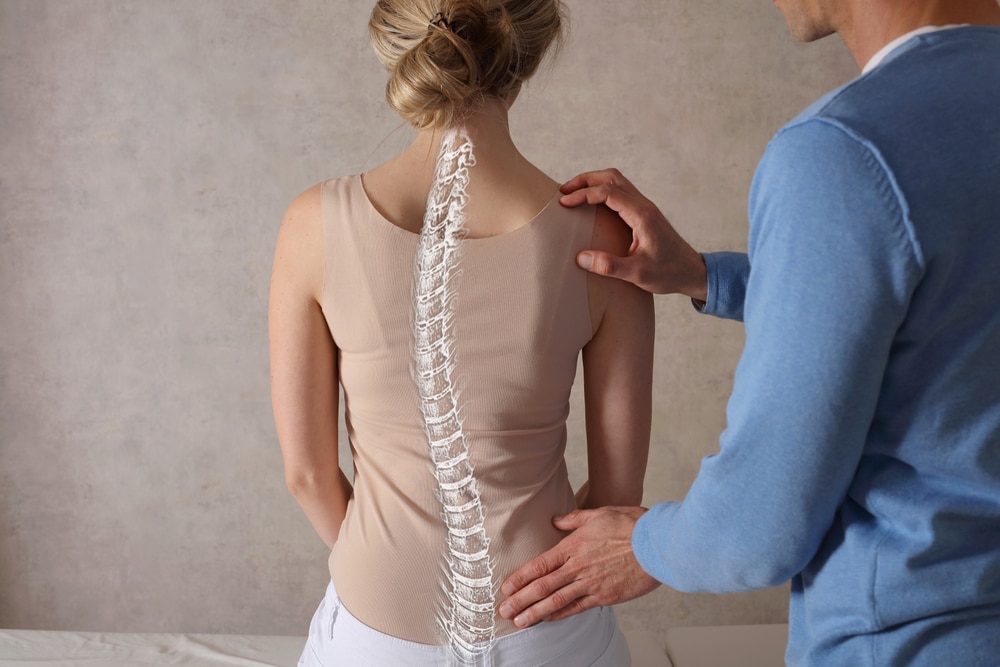
Spine specialist treatment for scoliosis can be a life-changing experience for those living with the condition. Scoliosis is a condition where the spine curves abnormally, often causing chronic pain and discomfort in the back, neck, and spine.
Spine specialists have the knowledge and expertise to provide the best scoliosis treatment. They understand the anatomy of the spine, the different types of scoliosis, and the applicable physical medicine. Patients can find relief from their symptoms and improve their quality of life with assistance. A spine specialist has the expertise to provide the right treatment plan for each patient, from conservative treatments like physical therapy, bracing, and exercise to more aggressive treatments like spinal fusion surgery.
Scoliosis is a curve in the spine that can be painful and cause health problems.
Most people only have mild scoliosis symptoms; however, severe cases can cause numbness, pain, and muscle spasms. The severity of curvature varies from person to person, and there is no standard classification system.
Individuals diagnosed with moderate to severe cases should seek professional help as soon as possible from an experienced doctor at a spine center. To avoid serious complications such as nerve damage and vertebral collapse, a skilled doctor must closely monitor these conditions.
Adults who develop scoliosis later in life usually have more severe symptoms, such as:
When a person develops scoliosis, there is usually a period when the deformity does not cause any noticeable signs or symptoms; this is known as adolescent idiopathic scoliosis (AIS). It usually happens between the ages of 10 and 18 when girls go through puberty, which causes their spine to grow faster than usual. Adolescent idiopathic scoliosis typically lasts 2-3 years before progressing to the active stage and exhibiting symptoms such as:
If you suspect your child is developing scoliosis, make an appointment with a pediatrician as soon as possible. The pediatrician can perform diagnostic exams to determine if the child has structural defects in their spine. If this is the case, they will refer them to a neurologist for further evaluation and a scoliosis diagnosis.
A neurologist specializes in diagnosing brain diseases such as epilepsy and mental illnesses, but he is also trained in various types of central nervous system abnormalities. For example, he might use MRIs or CT scans to identify what kind of shape deformities are going on in the spinal cord and then come up with different strategies based on his findings.
To diagnose scoliosis, a spine specialist will use specialized imaging techniques to view your spine. X-rays and MRIs are the most commonly used imaging tests to diagnose scoliosis. X-rays aid in determining the extent and severity of the curve, while MRIs aid in identifying any disc or joint problems.
Your doctor may also conduct physical exams to assess your mobility and strength. They may also request blood tests to rule out other conditions. It is critical to obtain an accurate diagnosis so that the patient can receive the proper treatment.
Once a diagnosis has been made, your spine specialist will recommend a course of treatment. Non-surgical treatment options include:
Bracing is typically used to prevent curves from progressing. The brace must be worn at least 16 hours a day and fit properly to be effective.
Exercise in physical therapy can help strengthen the muscles surrounding the spine and improve posture. For mild cases of scoliosis with no progression, observation is advised. If the curve does progress, surgery may be recommended. The spine can be realigned, and the degree of curvature reduced through surgery. Surgery, however, carries risks and should only be performed if the benefits outweigh the risks.
Surgery should only be used as a last resort if other treatments have failed. Before beginning any treatment, it is critical to discuss the risks and benefits with your spine specialist. Sometimes, the best course of action is to monitor the patient’s progress to ensure that the curve does not worsen.
If you suspect you or a loved one has scoliosis, you should see a spine specialist as soon as possible to get an accurate diagnosis and begin treatment. Remember, the earlier scoliosis is detected, the better your chances of successfully managing it.
It is important to note that not all doctors specialize in spine issues.
While orthopedic surgeons specialize in all aspects of the musculoskeletal system, spine specialists are frequently more qualified than these other types of doctors in diagnosing and treating spinal conditions. They are experts in this field and understand the anatomy of the spine as well as the various ways it can be injured or affected by diseases or other conditions.
But neurosurgeons, general surgeons, physical therapists, and even primary care doctors may be able to diagnose and suggest treatments for spinal problems.
It is critical to seek treatment from an experienced spine specialist in order to manage the physical and emotional concerns associated with scoliosis. Spine Specialists in our free directory of doctors are well-versed in the diagnosis and treatment of various types of scoliosis. We work with our patients to figure out the best way to treat scoliosis, from braces to surgery, so they can feel better and have better physical and mental health. Doctors listed in our directory accept most health insurance plans.
Call us at (800) 897-8440 today to schedule an appointment with an experienced spine specialist near you.
Find A Doctor | New York Doctors | New Jersey Doctors | Connecticut Doctors
Medical Services | Conditions Treated | Insurance | Contact Us | Privacy Policy | Site Map | Terms of Service | Blog | Advertising
This site does not provide or endorse any medical or legal advice. All medical practices listed on this site are independently owned and operated by licensed physicians. Learn more
Copyright © var currentYear = new Date().getFullYear();document.write(currentYear); Injured Call Today. All Rights Reserved.
